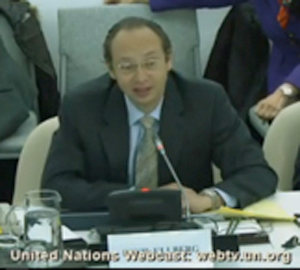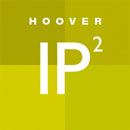Home » The Ullberg Report
Category Archives: The Ullberg Report
Transatlantic workshop on patent markets with EC – key issues discussed
Several fundamental issues were discussed during a one-day trans-atlantic workshop in Brussels on March 3, 2016, with representatives from top patent licensing firms in the world and EU as well as US policy makers. The aim was to identify current and emerging issues in the patent market that could merit further research efforts funded by agencies – and firms – […]
Book release Dec 2014: New Perspectives on Internationalization and Competitiveness — Integrating Economics, Innovation and Higher Education
From the back: This excellent collection of essays provides new insights as to how the development and diffusion of knowledge are facilitating convergence in the structure of research organizations across the globe -- a process that has enormous implications for how actors in all parts of the world compete with one another in an increasing array of arenas. The essays have valuable implications for understanding how producers of all kinds of knowledge across the globe are competing with one another and how geographical space and nation states are less important in the competition for novelty. Rogers Hollingsworth University of Wisconsin (Madison) University of California San Diego From Introduction (Springer preview): This book is about the integration of science and technology in an increasingly international and competitive environment for firms, universities and nations. Science is here referring to higher education and research. Technology is referring to technical solutions (which may be patented, trade secrets or “open source”) and its application in new product and service innovations. What tie these topics together are economics and their respective measurement, hence the subtitle: integrating economics, innovation and higher education. This scope makes the book an input to today’s global socio-economic development in terms of policy and measurement. The articles and idea papers were originally discussed using a workshop format to present in an interdisciplinary fashion, areas of current research and thought related to internationalization and competitiveness with the aim of identifying basic problems–problems extant in all disciplines–to inform new research projects which in turn could inform policy. The contributions to the first workshop were intended to include disciplines from: economics, higher education, strategic cooperation and culture. In the follow-up workshop which built on the findings from the first workshop, in particular the strategies, take a look at those strategies adopted by businesses and governments for institutional development, emerging market development, faculty entrepreneurship and Big Data as a research method. (Unfortunately, the culture theme was not possible to cover in the end. It was replaced by a scientific “culture” of methodologies.) The papers are organized in two main sections: science and economics, and innovation policy and its measurement. Within each section are first the policy related papers and then the measurement related. The 9 papers–a selection from 27 presentations from both workshops–include 4 with policy focus and 5 with measurement focus. The structure of the book was inspired by D. North (1981) who contends that “the second economic revolution” was the integration of science and technology. A range of problems were discussed during and after the workshops and a few initial basic problems were identified. These are certainly only a beginning of a long list and, hopefully, many more basic problems will be identified by the readers of this book. They are, in short: 1. Time to think: A better balance between the creative process and operational process, to allow for new solutions to be created. People need “time to think”, to create “new” which is in contrast to activities on the margin in operations of “more”. 2. Higher education as economic agents: Policy implications of universities as input to economic development, in close, international, cooperation with economic and government agents. 3. Agency in measurement of innovation: Behavioral properties of institutions for efficiency that includes entrepreneurship. Study of “people x institutions”, not only institutions needed to include human behavior in policy analysis. 4. The Strategic Dimension of Team work: Diversification of ideas as a new measure: A structural element that structures higher education and research in more interdisciplinary ways that facilitates international cooperation, but also between firms, universities and government, creating increased competitiveness. The key discussions in each paper, and their relation into this bigger picture of analysis, are now summarized, after which an outline is presented of each of the initial basic problems. Continue reading

















Recent Comments